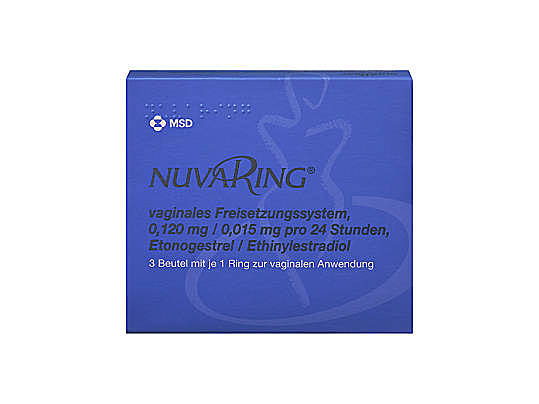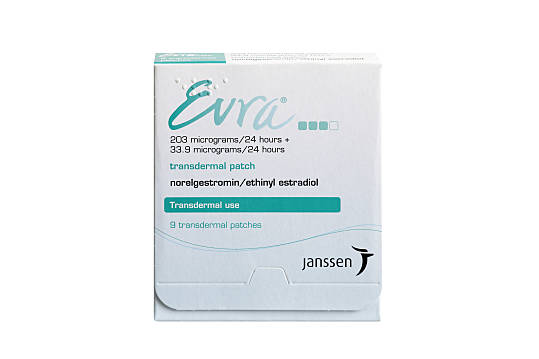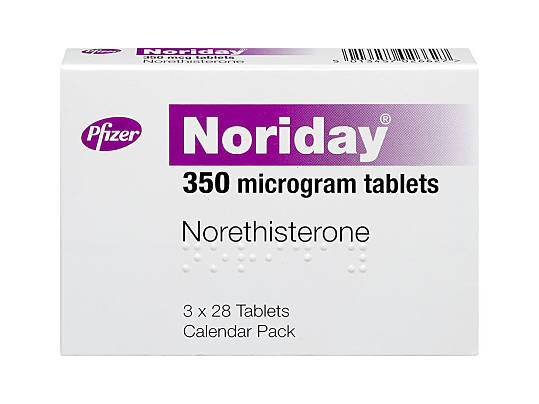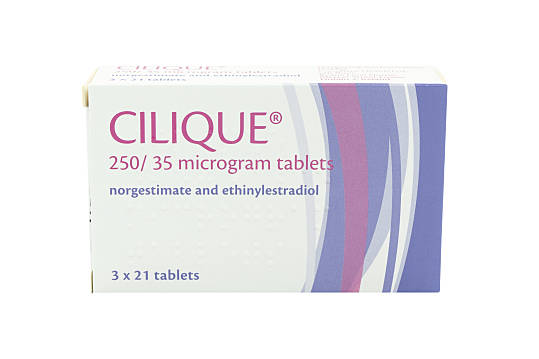Contraceptive Pill
Order a prescription for your pharmacy of choice for the contraceptive pill.
Simply fill in a brief questionnaire. One of our doctors will review your order and prescribe a suitable treatment. How to Order
You can order your repeat prescription for the contraceptive pill online at ZAVA.
Our service is suitable for women who have been taking an oral contraceptive pill for at least three months.
Simply complete our brief medical questionnaire, and a ZAVA doctor will then check to see if the treatment is right for you. They will then issue your prescription to a local pharmacy in Ireland, or you can choose to have your medication delivered directly to your door.
A consultation for the contraceptive pill prescription costs €21.50.
Contraceptive pills







No results found.
Please check your spelling or try another treatment name.



What is the contraceptive pill?
What is the contraceptive pill?
The combined contraceptive pill protects against pregnancy. It can be used to treat heavy periods, painful periods, PMS or premenstrual syndrome, and endometriosis. It can also improve acne.
A woman gets pregnant when a man’s sperm meets one of her eggs. To prevent pregnancy, the pill keeps the sperm and egg apart, by stopping ovulation, by making it harder for sperm to get to an egg and by making it harder for a fertilised egg to implant in the lining of the womb. The combined pill contains synthetic versions of the female sex hormones oestrogen and progesterone. To take it, you swallow one tablet at roughly the same time each day with a glass of water.
How effective is the contraceptive pill?
There are different types of contraceptive pill but when used correctly, all types are over 99% effective at protecting against pregnancy.
The contraceptive pill is one of the most used contraceptives in Ireland, alongside the condom.
For further information, please read our article on the effectiveness of the contraceptive pill.
Is it safe to take the contraceptive pill?
The pill is not without disadvantages but for many women the benefits outweigh the risks. It is quite common for the pill to cause some temporary side effects, which include mood swings, tender or sore breasts, headaches, breakthrough bleeding and spotting, and nausea. These side effects normally go away after a few months. If they do not pass, you can try a different pill instead.
What do I need to know about the pill, blood pressure and thrombosis?
The contraceptive pill can raise your blood pressure. It has also been linked to an increased risk of getting breast cancer and thrombosis (blood clots). Blood clots are very rare, but your doctor will discuss risk factors with you to decide which pill is most suitable for you. If you have two or more of the following risk factors, you should not take the pill:
- If you are aged 35 years or older
- If you smoke or have stopped smoking in the past year
- If you are overweight and your Body Mass Index (BMI) exceeds 30
- If you suffer from migraines
- If you have high blood pressure
- If you have had a blood clot or a stroke in the past
- If you have a close relative who has had a blood clot before they were 45 years old
- If you will be immobile for a long time, e.g. if you’ve broken your leg and it’s in plaster or if you use a wheelchair.
Is it true that the contraceptive pill increases the risk of cancer?
Research is ongoing but suggests that the pill is also linked to an increased risk of cancer. Women who use any type of hormonal contraception are more likely to get breast cancer than women who do not use hormonal contraception. Ten years after you stop taking the contraceptive pill though, your risk of getting breast cancer returns to normal. There is some evidence to suggest there might be a link between the pill and the risk of getting cervical cancer and a rare type of liver cancer too. But also, there is evidence to suggest that the pill can protect against colon cancer, ovarian cancer and endometrial cancer (cancer of lining of the womb). It also reduces your risk of getting non-cancerous breast disease, fibroids and ovarian cysts.
How do I take the contraceptive pill?
To take it, you swallow one tablet at roughly the same time each day with water. Some pills come in packs of 21 tablets. With these you take a pill a day for 21 days, then you have a seven-day break.
Other pills come in packs of 28 tablets. With these you take a pill every day and do not take a break, but the last seven tablets are placebos (pills that do not have any medicine in them).
Which contraceptive pill is best?
Every woman reacts differently to each pill. Your doctor will assist you in choosing a suitable pill. It is not uncommon for women to have to try more than one pill before they find one which works well for them. Some pills are more frequently prescribed than others, for example Yasmin and Microgynon. Yasmin is the most popular pill world-wide and is favoured by women who are worried about putting on weight, because it prevents water retention.
Does the contraceptive pill provide immediate protection?
Most contraceptive pills, like Marvelon, offer immediate protection against pregnancy if you start taking them on the first day of your period. If you start taking one of these pills later than the first day of your period, then you will need to use a form of barrier contraception (e.g. condoms) for seven days. Another example is Microgynon, which is also available in packets of 28 tablets: 21 contain the active ingredients, the other 7 are placebo tablets so that you do not break the habit of taking your pill each day.
I have forgotten to take my pill – can I get pregnant?
Whether you are taking a combination pill or a mini pill, all contraceptive pills need to be taken at the same time every day. Forgetting or missing a pill can affect your contraception cover and should be avoided. Most pills can be taken with a delay of up to 12 hours, however, due to their lower hormone content some progesterone-only pills (or mini-pills) lose their contraceptive protection much quicker. Please read the patient leaflet and ensure you understand the time frame for taking your specific pill.
Whether forgetting a combination pill has affected your contraception depends on how much time has passed. If you remember to take the missed pill within 12 hours you are still protected. In this case, there is no need for the use of additional methods of contraception. Just take the pill as soon as you remember and continue your treatment at your usual time (even if this means taking two pills in a 24-hour period).
I should have taken my contraceptive pill more than 12 hours ago - what do I need to do?
If more than 12 hours have passed since your usual time for taking your daily contraceptive pill, this may have affected your protection. Whether you need to take extra steps to prevent pregnancy depends on during which week in your cycle you have missed a pill. The patient leaflet of your contraceptive pill contains detailed information on how to proceed in the 1st, 2nd and 3rd week of your monthly course of tablets. Follow these instructions carefully and ask a doctor if you have any questions. If you have missed a pill in the third week you may need to skip the break during the fourth week and continue with a new pack straight away.
What are combined contraceptive pills?
The combined contraceptive pill is usually just referred to as ‘the pill’. It contains two artificial forms of the natural sex hormones, oestrogen and progesterone. It usually comes in 21-day packs although Microgynon 30 ED is an example of a 28-day pack, which contains 7 medication-free pills. There are a few different ways of taking combined pills and we recommend discussing with your doctor or nurse which one might be best for you.
There are different brands of the combined oral contraceptive pill. They all do the same thing but contain different amounts and types of oestrogen and progesterone.
The brands of combined pills we offer are: Cerazette, Evra, Logynon, Mercilon, Microlite, Noriday, NuvaRing, Ovranette, Qlaira, Yaz, Yasmin, Yasminelle, Zoely.
What is the mini pill?
While the combined pill normally has two types of hormones in it, the mini pill only has one. The active ingredient in the mini pill is progestin, a synthetic form of the hormone progesterone that appears naturally in the female body. The mini pill is 99% effective at preventing pregnancy, as long as you take it correctly. It works by preventing ovulation, stopping sperm from getting to an egg to fertilize it, and making it difficult for a fertilized egg to implant in the womb.
What are low oestrogen pills?
Low oestrogen pills have a smaller amount of oestrogen in them than standard or high dosage combined contraceptive pills.
The Low oestrogen pills we offer include:
A lower dose of oestrogen may increase the risk of breakthrough bleeding, but it can reduce oestrogen-related side effects of the pill, like:
- Breast tenderness
- Nausea
- Bloating
- Fluid retention
Studies have shown that women who use a contraceptive pill with less than 30 micrograms of ethinyl oestradiol are at a lower risk of pulmonary embolism (blood clot in the lungs) and the risk of heart attack and stroke appears to be greater with higher doses of oestrogen.
What are phasic pills?
There are a few types of phasic pills: biphasic, triphasic, and quadriphasic pills, as well as monophasic or ‘non-phasic’ pills. We offer the following phasic pills:
Monophasic pills have the same amount of oestrogen and progesterone in each active pill in the pack, so the hormone levels stay consistent throughout the pack. Studies have not found any difference in side effects, bleeding patterns, or contraceptive effect between monophasic and phasic pills, so monophasic pills are still the suggested first-line combined pills.
Biphasic pills change your hormone level once during the pack. The biphasic pill we offer contains the same amount of oestrogen each day, but the amount of progesterone is increased halfway through your cycle.
Triphasic pills contain three different doses of hormones. About every 7 days, the hormone combination changes. But, it depends on the brand whether the oestrogen and progesterone levels change. The pills are usually colour-coordinated so you can tell which dose you are taking.
Quadriphasic pills are like triphasic ones; they just include 4 different dosage combinations instead of 3.
What is the contraceptive patch?
The contraceptive patch works in a similar way to the combined oral contraceptive except the patch sticks to your skin rather than being in tablet form. Hormones are released from the patch into the bloodstream via the skin.
Like the pill, the patch works by:
- Stopping ovulation from occurring
- Thickening the mucus of the cervix
- Thinning the lining of the womb
The contraceptive patch ZAVA offers a prescription for is Evra. Side effects and risks of taking Evra are similar to the combined pill.
Where and how to get the pill
You can reorder a prescription for the combined pill (or patch) mini pill online from ZAVA if you have been using it for at least 3 months and you are happy with it. The process for both is quick and simple:
- Fill out a short online assessment about your health and lifestyle
- Place a prescription order for your preferred treatment option
- Your assessment will be checked to see if your order is right for you
- Your prescription will be posted to your preferred address or you can collect it from a local pharmacy instead
We are a registered pharmacy and all our doctors are registered and regulated by the Irish Medical Council (IMC). Our service is also registered and regulated by the Health Protection Surveillance Centre (HPSC).
You can get the contraceptive pill from your own doctor or nurse, too. You will need to make an appointment with them and explain you would like the pill. They will look at your medical and family history, blood pressure, BMI, and any symptoms you may have before offering you the pill.
Are there any serious risks of the pill?
There are some serious risks associated with taking the pill.
Cancer: there is ongoing research looking at the link between breast and cervical cancer and the pill. Some research shows that users of combined hormonal contraception have an increased risk of developing breast or cervical cancer compared to women who do not use them. A link between breast cancer and the mini pill has not been proven or disproven.
On the other hand, the combined pill offers some protection against ovarian, endometrial, and colon cancer.
Blood clots: hormonal contraception which contains oestrogen can slightly increase the risk of blood clots for people who are already at risk. This risk is higher with some types of combined pill compared to others, depending on the progesterone hormone they contain. Blood clots can cause:
- Deep vein thrombosis (DVT) – a blood clot in the leg
- Pulmonary embolus – a blood clot in the lung
- Stroke
- Heart attack
Although the risk of developing a blood clot is small, your doctor will check to see if you have any specific risk factors. Risk factors include:
- Age over 35 and smoking (or if you have quit in the last year)
- Age over 50
- Being overweight
- Having a history of migraines
- High blood pressure
- Having a close relative who has had a blood clot under the age of 45
- Having a previous blood clot, stroke, or heart attack
- Having atrial fibrillation or angina
- Being immobile
- Having a hereditary blood clotting condition
The list above does not include every known risk factor. When starting or re-ordering either a combined pill or patch, or mini pill, you should always provide information on any old or new medical conditions. This is because the pill is not right for everyone.
You should also provide information on any medications you are taking, including over the counter or herbal remedies, because some medications can react with your pill or patch making your medications/contraception less effective or safe.
You should also read the information leaflet supplied with your pill for a list of all known side effects, cautions and drug interactions.
Does the pill interact with other medications?
The pill interacts with some types of medication, so if you are concerned you should speak to a doctor or read the patient information leaflet. The medications it interacts with include some types of antibiotics (including rifampicin and rifabutin - mostly used to treat tuberculosis and meningitis); epilepsy medication, St John’s Wort and HIV medications (all of which speed up the time it takes for your liver to break down progestogen).
Types of contraceptive pill
There are a few different categories of the contraceptive pill:
- Combined pills or mini pills
- Monophasic or phasic pills
- High-standard or low-dose oestrogen pills
- 21 or 28 pill packs
- Pills that contain different types of oestrogen and progesterone as their active ingredients
How to get the pill in Ireland
You can get the pill in Ireland through:
- An online doctor service like ZAVA
- GP surgeries
- Sexual health clinics
- Some young people’s services
- Some community and hospital clinics (gynaecology)
Which pill is right for me?
If you do not have a medical reason why you should not take the pill and as long as you do not smoke, the pill may be suitable for you. Unfortunately, every woman seems to react slightly differently to each pill, so you may have to try a few until you find the one that works best for you. Some women who have had trouble with some of the other types of contraceptive pills find that ‘premium pills’ like Yasmin work better for them.
Side effects of the contraceptive pill
Common side effects of the combined contraceptive pill include:
- Headaches
- Mood swings
- Nausea
- Dizziness
- Low sex drive
- Sore or tender breasts
- Changes to your bleeding pattern, especially in the first 3 months
Common side effects of the progesterone only pill include:
- Changes to bleeding patterns
- Low sex drive
- Acne
- Headache
- Breast pain
- Nausea
Even though weight gain is listed as a potential side effect of both combined pills and mini pills, this is temporary and caused by water retention. Research does not show that the pill causes permanent weight gain, or that the mini pill causes depression or mood changes.
Side effects can vary depending on the type and amounts of hormones used in each combined pill or mini pill, so you should always read the information leaflet that comes with your pill for more information on potential side effects.

Dr Clair Grainger studied at The University of Edinburgh from 2004 to 2009. She's worked in hospitals throughout Edinburgh and London before completing her GP training in North Middlesex Hospital in 2017.
Meet our doctorsLast reviewed: 08 Jan 2021
-
The Faculty of Sexual and Reproductive Healthcare (2019). Combined Hormonal Contraception. [online] Available at: https://www.fsrh.org/standards-and-guidance/documents/combined-hormonal-contraception/ [accessed 10th April 2019].
-
The Faculty of Sexual and Reproductive Healthcare (2019) Progesterone-only Pills. [online] Available at: https://www.fsrh.org/standards-and-guidance/documents/cec-ceu-guidance-pop-mar-2015/ [accessed 10th April 2019].
-
The Faculty of Sexual and Reproductive Healthcare (2016). UK Medical Eligibility Criteria for Contraceptive Use. [online] Available at: https://www.fsrh.org/standards-and-guidance/documents/ukmec-2016/ [accessed 10th April 2019].














